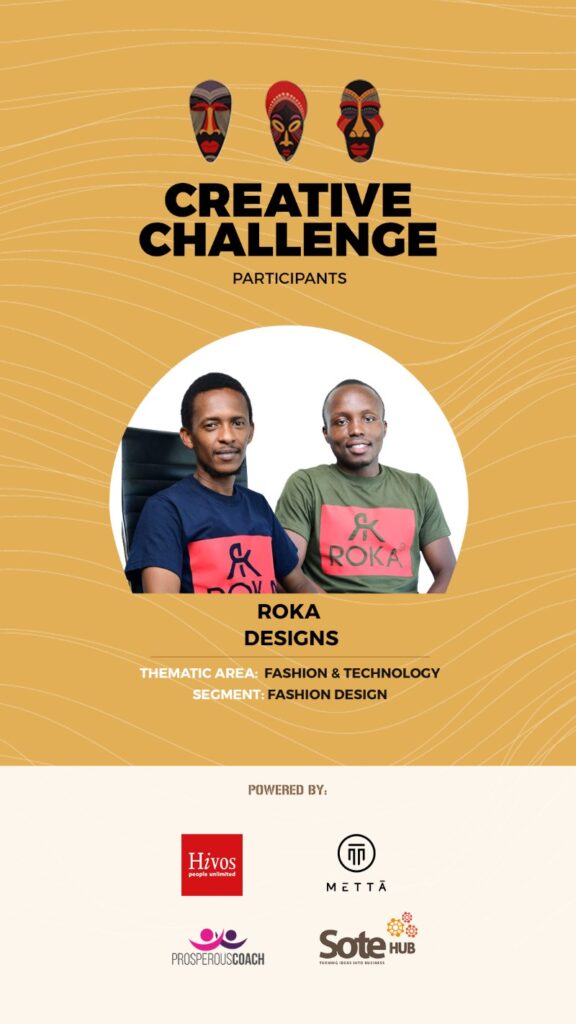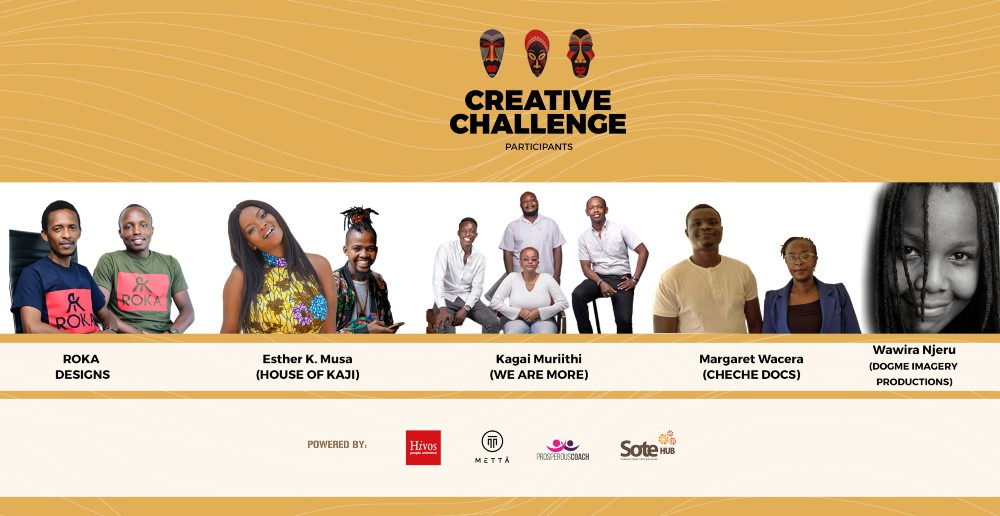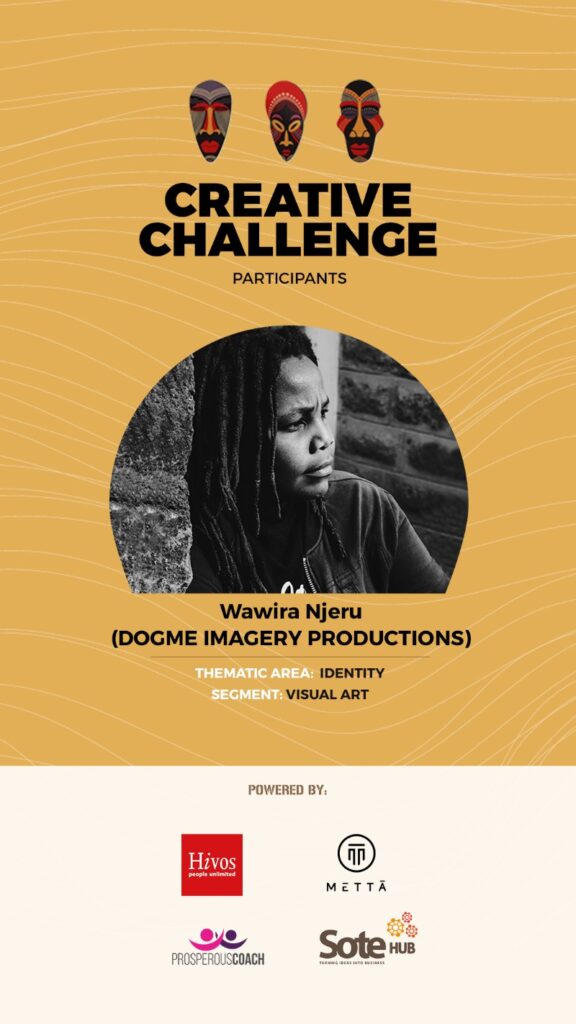This is a series of stories from the Resource of Open Minds (R.O.O.M) Program, New Ways of Working focus area. Through this new area we have on boarded 8 grantees in our continued support to defend the waning civic space in East Africa.
The prolonged COVID-19 pandemic has had its fare share of challenges affecting many sectors economically and socially. The arts and creative sector is not immune to these sets of challenges and has borne the brunt of government restrictions requiring social distancing and banning any sorts of mass gatherings.
This unfortunate sequel of events has had a devastating impact on livelihoods and immensely disrupted a source of income for many creatives reliant on their enterprises.
Working with this new reality is Nest Group Africa- Metta, a co-working and creative entrepreneurship hub based in Nairobi, supporting the work of creatives and entrepreneurs through a convening space and a linking and learning platform.
Their new creative challenge program powered by Hivos East Africa’s R.O.O.M program has been a game changer in strengthening the resilience of creative enterprises during the Covid 19 pandemic. It targets creatives and makers in fashion, videography, photography, online content creation, visual arts and design.
Hivos East Africa’s Sally Akinyi (SA) had a sit down with Whitney Ogutu (WO), Community and Programs Lead at the Metta Group to discuss some of the opportunities emerging from the Covid-19 crisis, their new creative challenge program and how creatives can realign their work to weather the storm during the pandemic.
SA: Tell me about your partnership with Hivos East Africa
WO: This is actually the third project we are executing with support from Hivos after the previous fashion lab in 2019 around disrupting fashion narratives and common stereotypes shrouded in gender and environmental justice.
Our new bespoke program: the creative challenge was informed by research that we commissioned at the start of the pandemic to harness learning around some of the unique challenges that creatives were grappling with whilst trying to sustain their enterprises. Some of the issues that came up from the research include: lack of peer-to-peer knowledge exchange, collaboration, mentorship and disruption of a stable revenue stream.
SA: Your latest announcement about a creative challenge sounds interesting. What is it about?
WO: The creative challenge was birthed to address two needs: First, in order to create a sense of community, we curated virtual networking avenues and events where creatives can learn from their fellow peers. An example is the ‘Women in’ series that featured women professionals in design, literature, visual artistry and storytelling to share their experiences.
Secondly, to address the issue of sustainability of creative enterprises through financing, we have a business development package tailored on giving capacity to creatives on how they can continue to earn revenue and also be agile to the changes in the sector due to the pandemic. In addition, we have offered financial support at a maximum of KES 125,000 each to 5 creative enterprises.
SA: What’s the uniqueness of this program?
WO: The creative challenge brings in the agility of democratizing access to opportunities and resources off-Nairobi, as is the norm with traditional funding to target Nairobi-centric enterprises. We focused on communities of creatives in other regions of the country and this went a long way in on boarding fresh talent.
SA: You mention your research unearthed some unique challenges. Please share these.
WO: One major challenge that our research highlighted was that creatives tend to focus on their passion and leave out core business functions that are needed to sustain their enterprises. These are aspects such as proper hiring, book keeping in accounting and administrative demands of any business.
Our master classes on business development were able to instil business skills in them and encourage them to have a balance between a creative and business mindset.
SA: How is the creative challenge strengthening the resilience of enterprises?
WO: Creatives have good ideas but lack the mentorship support to upscale their business ideas.
We realize unique opportunities such as networking expand knowledge exchange avenues where learning is bolstered and diverse ideas are harnessed in strengthening entrepreneurship skills. Our needs assessment further to the research was able to identify unique needs and match them to the right resources. This was ideally going an extra step to tailor a package that was alive to the realities around us particularly in up scaling business ideas.
SA: How were the participants selected?
WO: We sent out a call for applications from December 2020 – January 2021. This attracted a total of 750 applications with a selection process staggered in 3 stages.
First, we looked at how many applicants were able to meet the minimum requirements in the various segments: fashion, visual arts, design, online content creation and photography.
Secondly, we brought on board a panel of expert judges- who are mostly experienced creatives- to funnel the applications based on creativity and innovation.
Lastly, we assessed how the concepts would have a ripple effect and contribute to the wider community where the creatives are based. This resulted in the selection of 5 creative enterprises.
SA: What’s the sustainability plan of the creative challenge program?
WO: Sustainability is crucial in any programming targeting creatives. We have injected this in our plan to ensure that at the end of the challenge we plug in the creatives within our community of mentors and experts. Further, they will have access to our virtual networking events and equally use our physical co-working space for linking and learning.
SA: How is the creative challenge contributing to the R.O.O.M’s New Ways of Working agenda?
WO: The main pillar of the New Ways of Working is exploring the digital world, examining restrictions brought forth by the pandemic and supporting creatives and artists to adapt to a new thinking around preserving the history and memory of their work online.
Metta is contributing to this innovation by leveraging on ‘digitality ‘ and ensuring all the participants in our creative challenge have a digital aspect in their business and utilize this dynamic to market their enterprises on a global scale beyond Kenya
About the creatives
Cheche Docs
Cheche Docs is a documentary production company dedicated to producing a diverse range of documentaries for the market place.
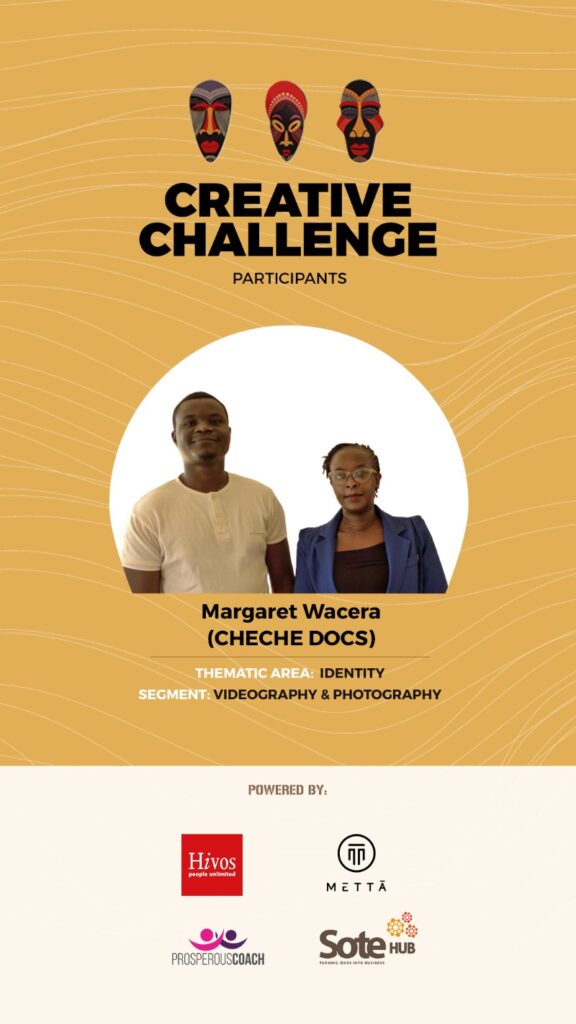
We are more
We are more is an organisation in Mombasa, Kenya that champions transparency and accountability through the law and tech to bolster human rights. They run a digital platform that provides free legal aid to justice seekers by giving them information, access to advocates and mediators.
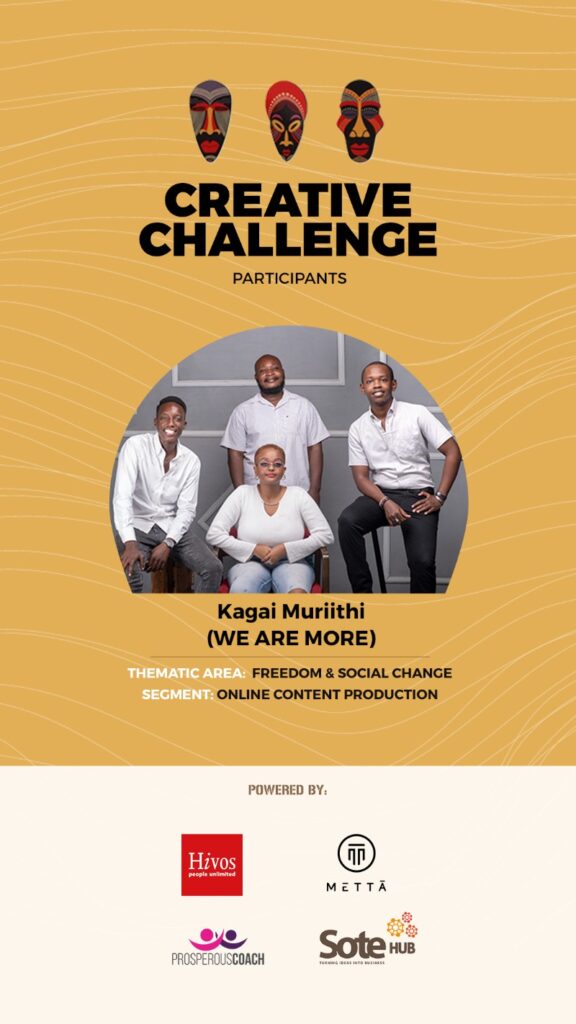
Dogme Imagery Productions
This is a documentary company that focuses on storytelling through photography and videography capturing topics around people, objects and identity.
House of Kaji
House of Kaji is a couture clothing company based in Kenya’s south coast: Diani. The company seeks to establish a fashion design school aimed at offering professional design skills to people within its community.
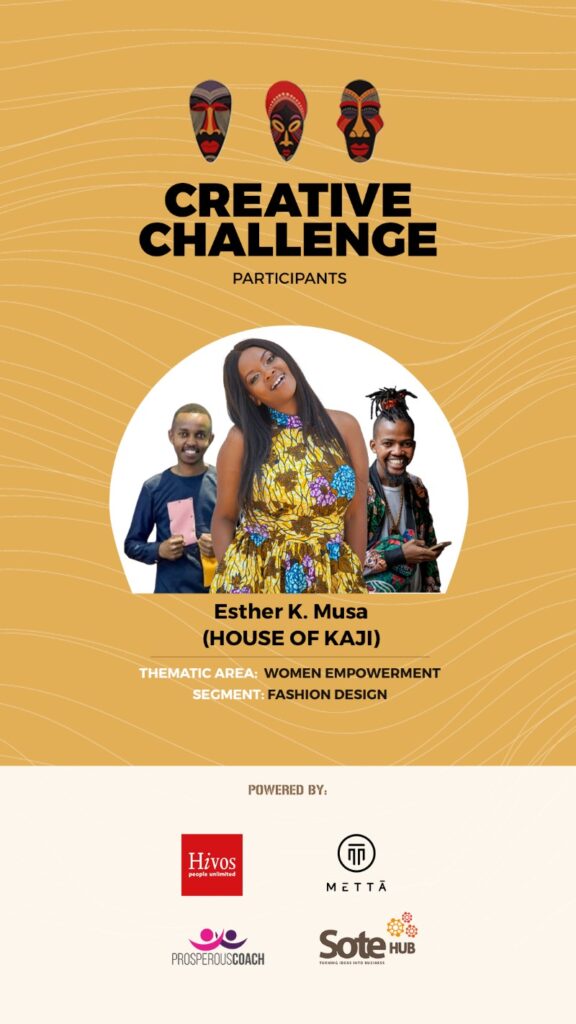
Roka Designs
Roka Designs is a fashion business based in Mombasa, Kenya that creates waterproof bags from recyclable material. Their work focuses on bolstering environmental justice, empowering the youth to be responsible citizens through environmental stewardship and creating job opportunities for the youth.
